Unfortunately, this didn't turn out to be as easy as I thought. I found that I ran into severe ethical issues when trying to gather material, and subsequently had to resort to collecting some of these pictures from other sources, instead of taking them myself. I've given credit where credit is due, whenever I could actually find the origins of a photo.
I also found out that I am hopeless when it comes to embedding images; try as I might, I couldn't figure out how to keep blogger from cutting some of them off. If you click on them, it'll bring you to the photobucket account that holds all the images, and you can see the entire things. I've been posting, deleting, re-working and posting again for the better part of a week, now, and haven't found a way around this problem. Sorry!
Anyway, on with the show!
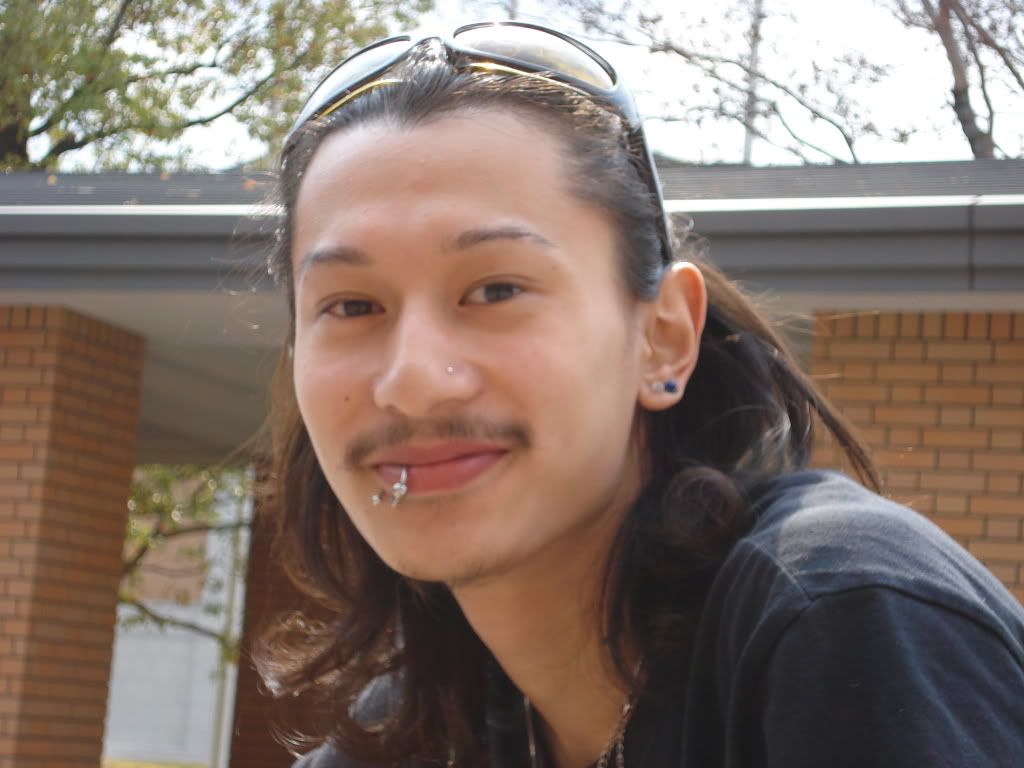
A friend of mine from KGU, Yusuke, who I bribed into allowing me to take his picture by buying him ice cream. We met last semester in the smoking area, and struck up a conversation because of our piercings. The global body modification culture is such that two people from two completely different cultures can still connect on the common ground of our piercings and tattoos.
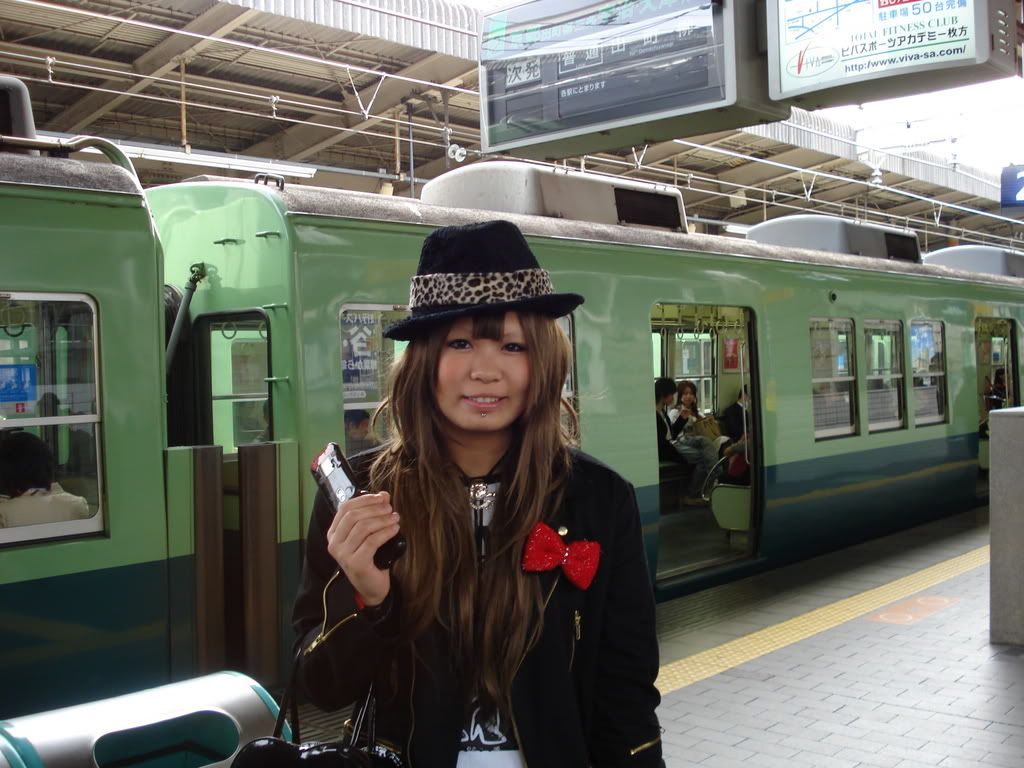
Here is a prime example of my biggest challenge concerning this project - my inexplicable inability to approach Japanese people and take their pictures. Whenever I had a translator with me, I had no material to shoot. Whenever I was on my own, body-mod kids came out of the woodwork. I managed to snap this picture in the Hirakata train station, by skittering up to this girl and asking her as politely if I could take her photograph. She was a bit confused by my explanation, but she humored me nevertheless.

A dear friend of mine, "Claire", poses for an impromptu photo - when I first met her, she was thrilled by my lip ring, but confused as to why it was on the "wrong side"; later, I learned that by "wrong", she meant "not-on-the-same-side-as-our-favorite-music-artist's". My experience is that Visual Kei fans here in Japan tend to get the same piercings and tattoos as their idols, instead of for the sake of individuality.
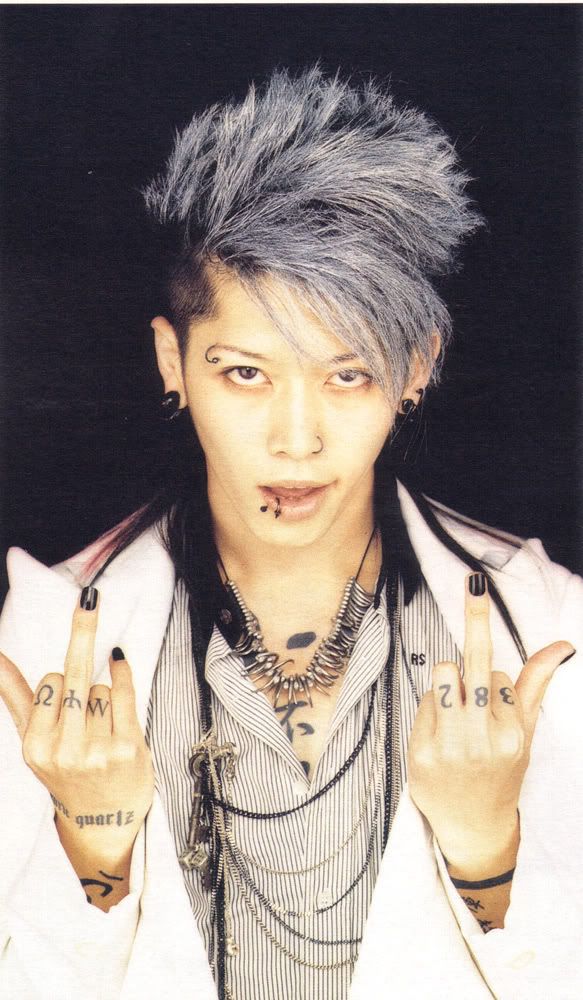
This is the abovementioned artist - Miyavi - who is a prime example of how tattoos have evolved in Japan; he's got quite a few of them, and they're all done in the western style. However, he claims that many people on the streets are still wary of him, convinced that he's Yakuza; the stigma attached to tattoos here in Japan may be fading a just a bit with the younger generation, but they're still widely associated with gang activity. (Photo courtesy of PSCompany)
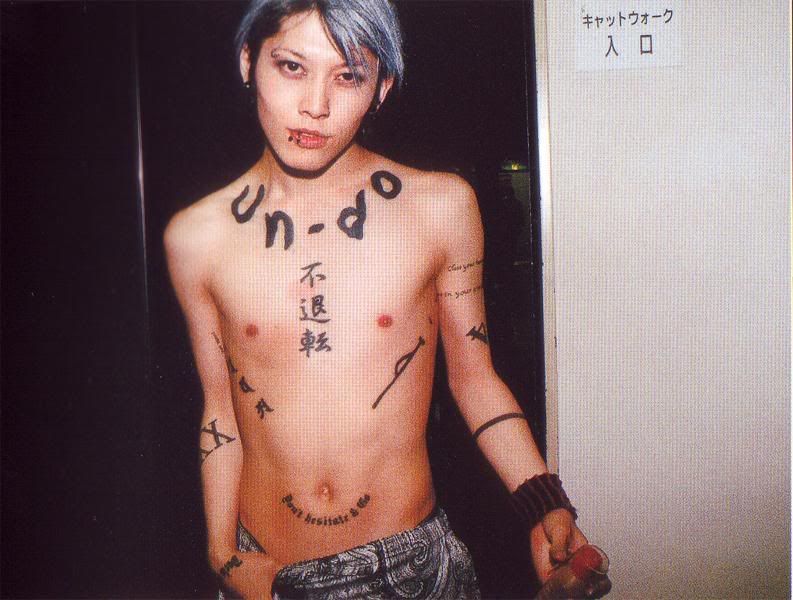
You've seen the piercings - now here's the tattoos. Please note that, while many of them are kanji, they're done in a distinctly western style, and do not include the colorful artwork of traditional Japanese tattoos. (Photo courtesy of PSCompany)
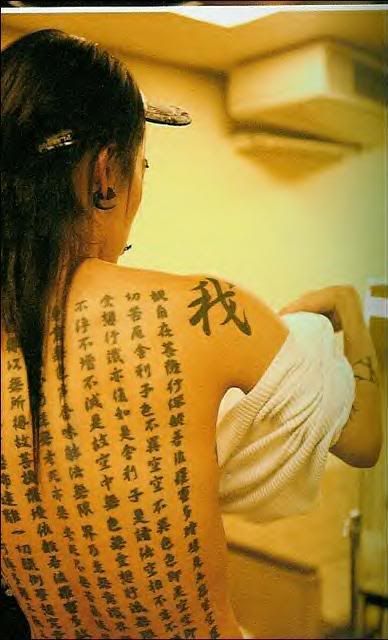
This Buddhist sutra on Miyavi's back took twelve hours at the hands of two tattoo artists working simultaneously. As a Visual Kei artist, Miyavi is nearly expected to have tattoos and piercings. (Photo courtesy of PSCompany)
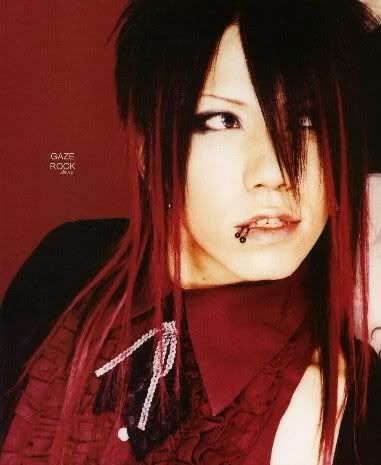
Aoi, a member of another Visual Kei band on the same label; he lists Miyavi as one of his idols, and (surprise) has his lip pierced in precisely the same place. Apparantly, emulation is not limited to the fans alone - artists will copy other artist's body modifications as well. (Photo courtesy of PSCompany)
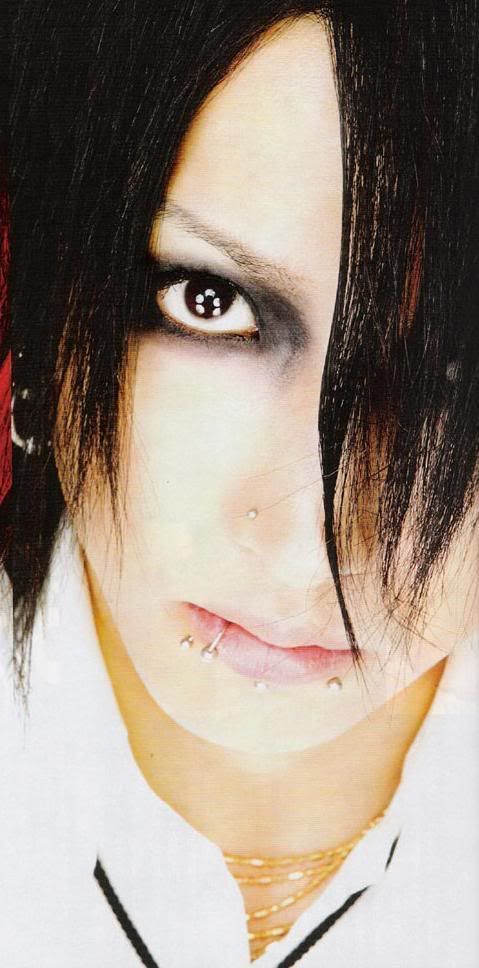
Another example of piercings in the Visual Kei world.
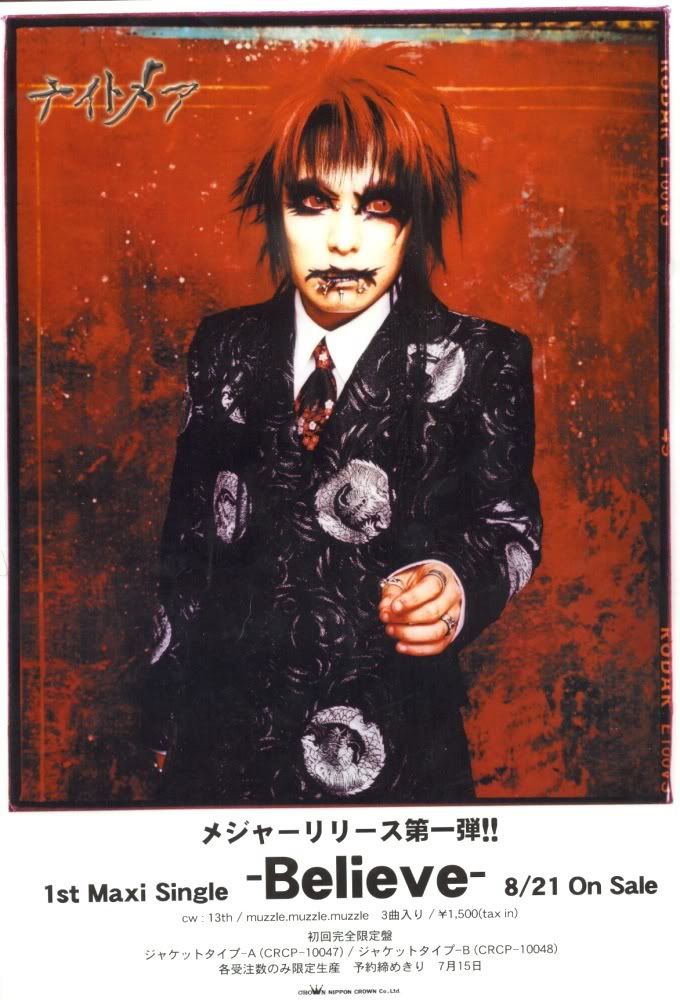
Another prime example of some pretty extreme facial piercings on a Visual Kei artist; apparently, the genre has roots in Kabuki theater, and I think it's fairly easy to see the influence of Kabuki in the dramatic makeup of this photograph.... (Photo courtesy of Nippon Crown)
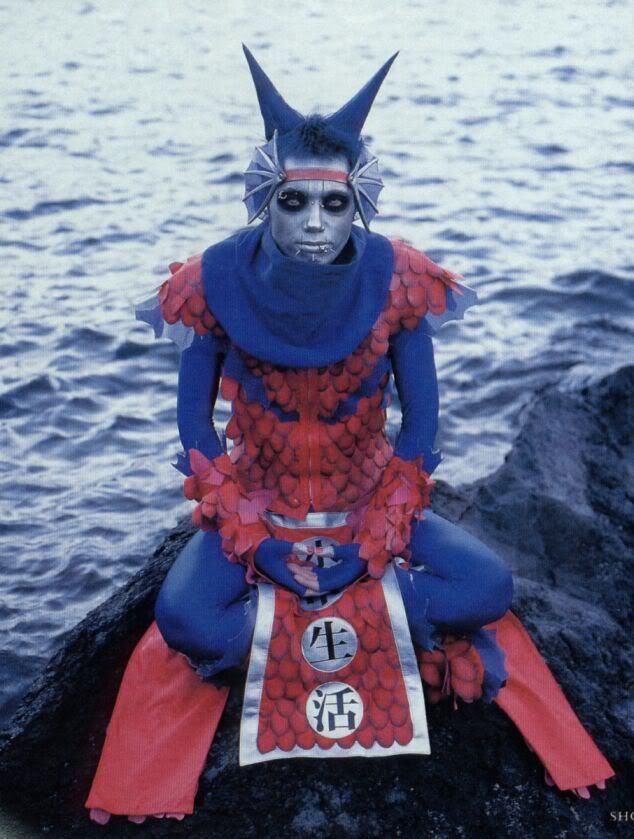
...and in this one, as well.
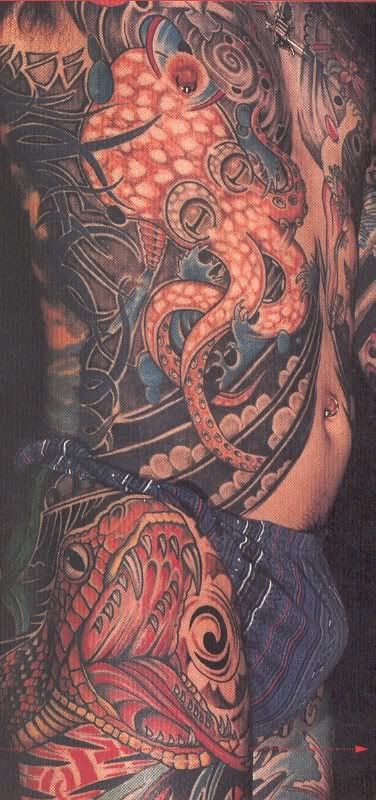
Although piercings are fairly modern and have a comparatively short history in Japan, traditional tattooing has been practiced here for centuries; outlawed for a time, it regained it's popularity last century, especially among members of the yakuza, with whom tattoos such as the one pictured above are still primarily associated in the minds of many Japanese people.
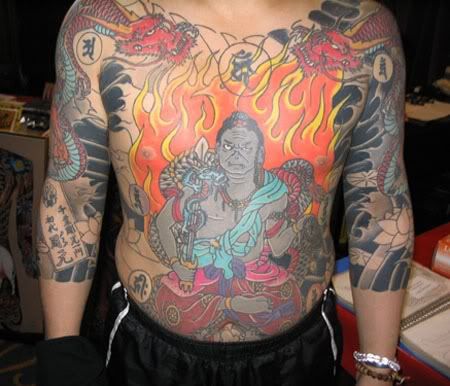
...However, recently the yakuza have moved away from prominant tattoos, to avoid immediate identification as gang members by the general populace. The stigma still prevails, though.
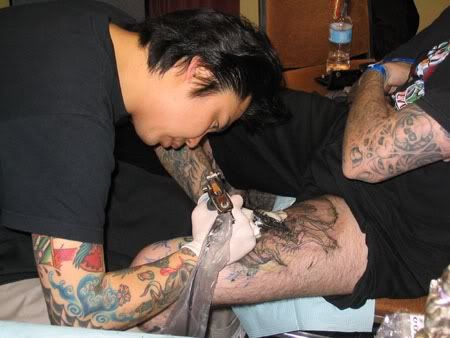
At the same time, western style tattooing is gaining popularity here in Japan. Western style tattoos use tattoo guns...
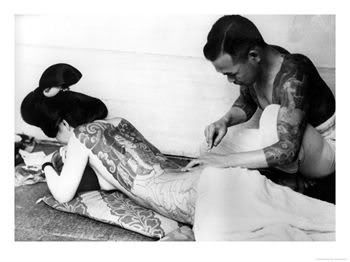
...while Japanese tattos are done in a distinctly different manner - above is an example of traditional Japanese tattooing techniques.
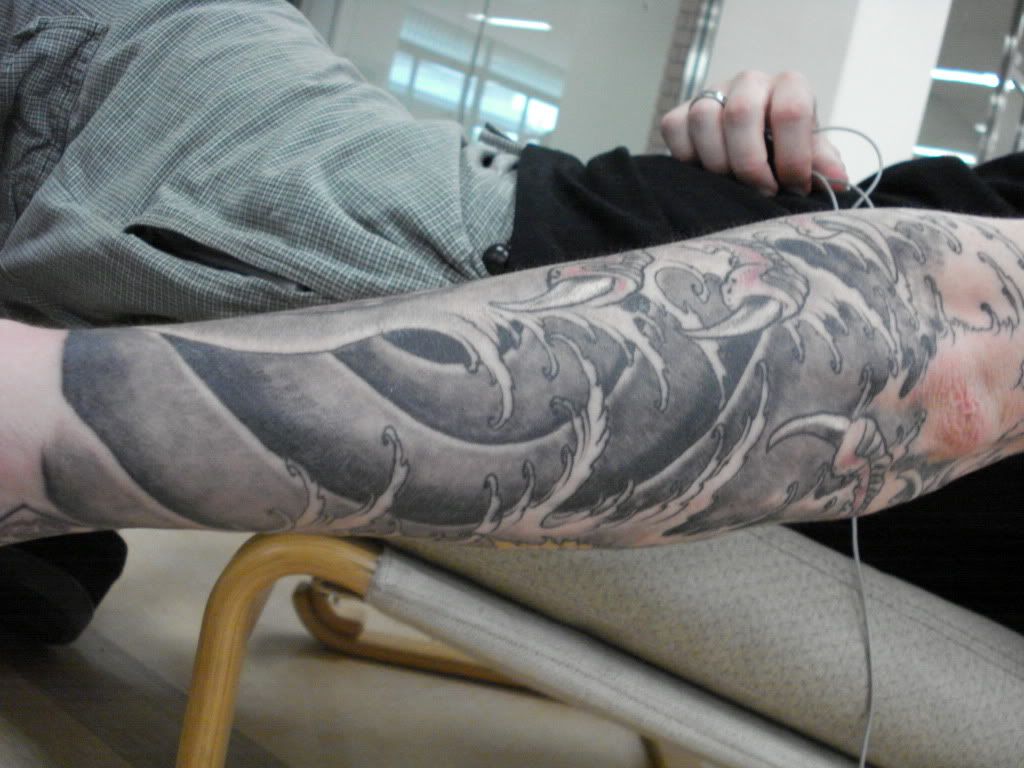
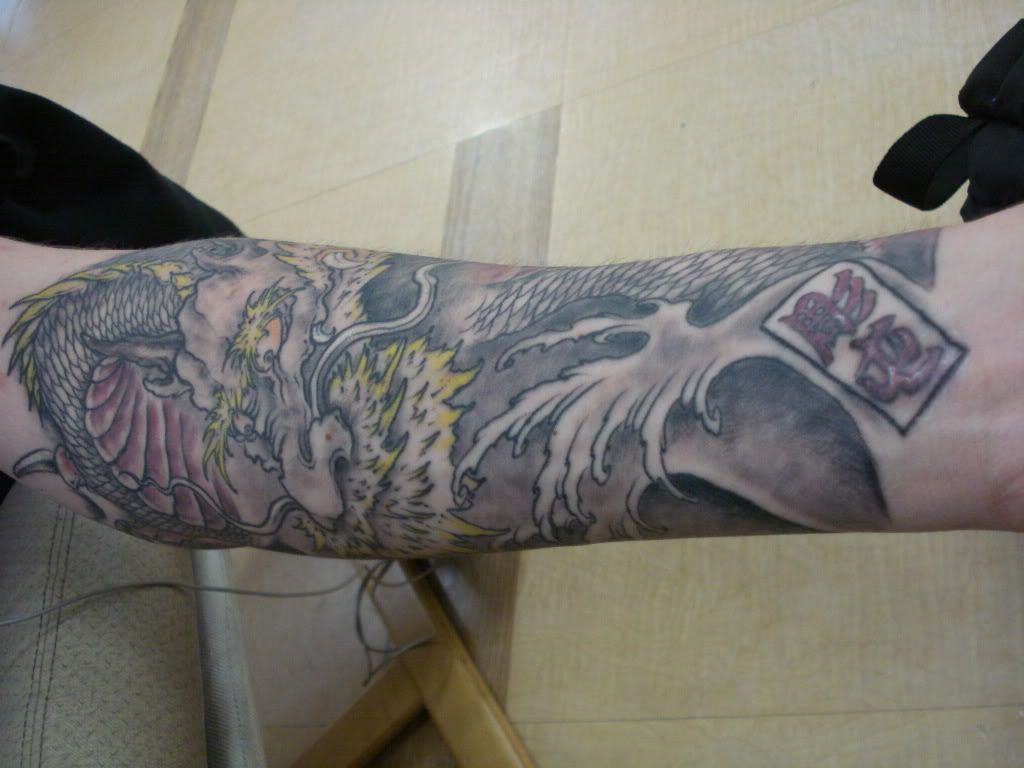
The two photos above are of Brent's arm - at my professor's suggestion, I asked him if I could photograph it; this tattoo was done here in Japan. Before the abovementioned suggestion, I'd been limiting myself to photos of tattoos ON Japanese people, instead of tattoos DONE by Japanese people.
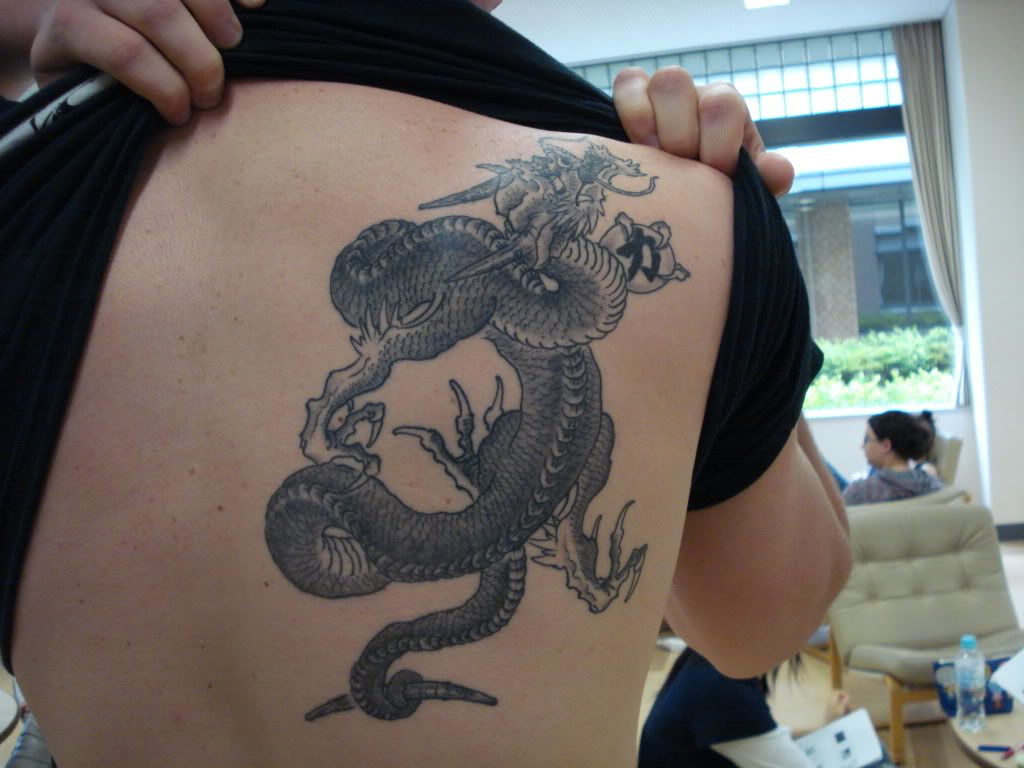
Another piece of Japanese artwork on a KGU exchange student.

Although, in the past, tattooing has been primarily attributed to men, many Japanese females nowadays are also getting inked.
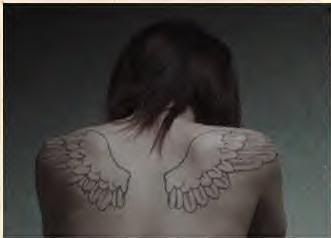
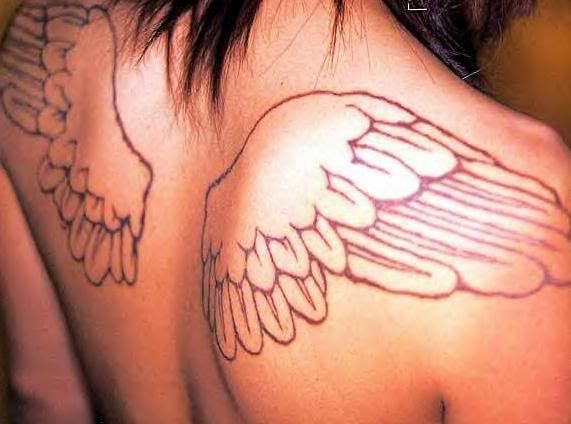
Two final examples of tattoos on a Japanese rock musician - Hyde, of L'Arc~en~Ciel. He's not a member of the Visual Kei community, which I find interesting, in that all the other public figures I've found that have body modifications just so happen to be Visual Kei artists as well. But western style tattoos aren't limited specifically to the VK subculture - their popularity is becoming more widespread every day.
All in all, although I ran into some heavy difficulties concerning personal ethics and the language barrier, some good did come out of it; had I not resorted to searching for pictures other than my own, I never would have been drawn down the path of Visual Kei, and realized it's relevance to the body modification subculture in Japan. This project didn't quite come out as I'd originally planned, but in the end I believe it was fairly successful - I got a great look at body modification as it's been adapted and assimilated into the broader context of Japanese culture itself, and discovered some distinct differences that it holds in comparison with it's western counterpart; as in many other things, the Japanese have taken something originally western, and adapted it in ways to make it their own.
8 comments:
I stumbled upon this entry through google. I'm American and I even know a few people who plan on getting piercings and tattoos in emulation of Miyavi. The interesting thing about Miyavi though, after reading this entry, is that in an interview when asked if any of his tattoos were about or influenced by the US, he responded:
Miyavi: "None. I don’t have any tattoos. I only have “irezumi.” Tattoos and irezumi are different. I only have Irezumi because I am “Japanese yakuza.” "
I really don't know the difference, but it might be of some interest to you.
Thank you for posting this, it was very educational and appreciated.
Hi! can you tell me wich sutra is tattooed on Miyavi's back? I need to know, thanks...
Love your Site! http://www.lasvegastats.com http://www.my208tattoo.com
This your Site! http://www.lasvegastats.com
http://www.my208tattoo.com
Love the blog! http://www.lasvegastats.com
http://www.my208tattoo.com
Love the blog! http://www.lasvegastats.com
http://www.my208tattoo.com
Thank you for your blog. It has been very helpful to me in the writing of my dissertation on social attitudes to body modification in Japan. I also went to Gaidai and it's great to know that others share these interests.
Post a Comment